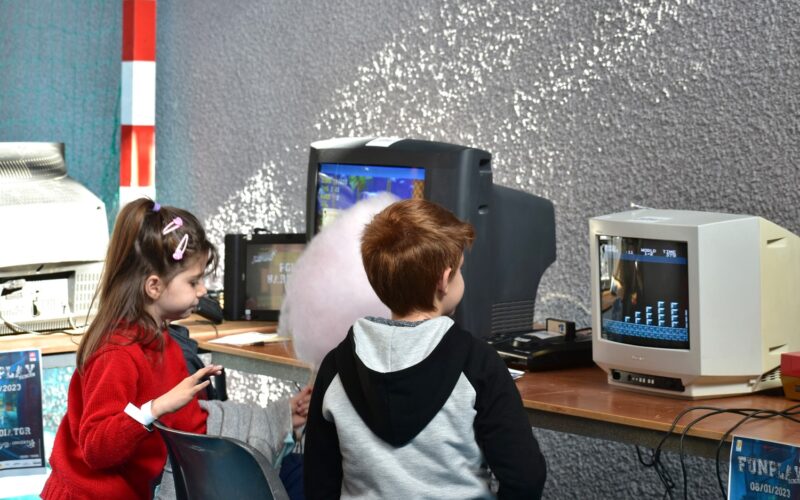In a large-scale study of nearly 2,000 children in the US, researchers found that those who played video games for three hours or more per day had better cognitive function test results, showing stronger memory and impulse control abilities than non-gamers.
Taipei, Taiwan (Business Northeast) – Would you stop your child from playing video games? According to the latest large-scale study in the United States, among nearly 2,000 children tested and analyzed, children who played video games for 3 hours or more a day had better cognitive function test results than children who did not play games, including control the ability to act impulsively and memory related to work and study. The research has been published in JAMA Network Open.
In the past, many studies have explored the impact of video games on cognitive behavior, but due to the small sample size and the lack of a clear understanding of the biological mechanism that triggers the association, no more definite results can be obtained. We only know it has some degree of influence on neuroimaging. So parents, always feel that video games have more negative effects on their children, and they are worried that their children will spend time indulging in them or develop irritable emotions or behaviors.
The study, led by a research team at the University of Vermont in the United States, analyzed and counted data from 2,000 children aged 9 to 10 who participated in the ABCD research program. The ABCD research is an “Adolescent Brain Cognitive Development” project co-funded by the National Institutes of Health and the National Institute on Drug Abuse in the United States. This study was used to understand the association between video games and children’s cognitive behavior.
The research team examined the questionnaires, cognitive abilities, and brain imaging data of the participating children, and divided these children into two groups. One group spent at least 3 hours a day playing video games, and the other group did not have the habit of playing video games. And then let them receive 2 test items in batches. Therefore, the two groups of children were evaluated for impulse control, memory ability, and brain response to understand whether there is a significant difference in their brain responses during the test.
The first program is to test their reflexes. Ask the child to press the left or right button immediately in the direction of the arrow that appears on the screen. When the “stop” symbol appeared on the screen, they were required to stop immediately and not press any more buttons to test how well they responded to impulse control. The second is to test their memory ability. First, the tested children were shown some face images, and then they were shown some pictures, to test whether the children could identify the matching degree of the images.
Statistical methods are used to control some existing variables that may affect them, such as parents’ income, children’s mental health status, and IQ. The research team found that in two tests, the group that played video games performed better, with faster and more accurate responses. Their brain activity was also scanned with fMRI while the experiment was taking place, and it was found that the children who played video games showed more activity in areas of the brain associated with attention and memory.
Studies have confirmed that children who play games have more activity in the frontal lobe areas of the brain, and these areas are related to cognitive requirements, which may be used for impulse control and memory ability when game tasks are performed. So playing games improves the performance of this aspect. On the contrary, the activity of the visual brain area is relatively low. The research inference is that they practiced repeatedly when playing the game. Therefore the efficiency of the brain itself in processing visual images has become higher.
Most of the previous studies have tended to explore the possible links between playing video games and depression, anxiety, and increased aggressive behavior. But in this large study, even though children developed problems related to mental health and behavioral differences, the relationship with video games was not significant. Therefore, whether it has a specific impact remains to be observed and explored continuously as children grow up. Of course, properly monitoring the type of game your child play is very important for their growth and development.
Bader Chaarani, the lead author of the study, an assistant professor of psychiatry at the University of Vermont and an expert in neuroimaging who is also a video game player, said that previous studies exploring the negative effects of video games usually have fewer participants and less evidence related to brain imaging. The research is limited and the representation is less complete. This large-scale study is funded by the NIH and is ongoing. It is believed that there will be a deeper understanding of the cognitive development of the adolescent brain and a certain degree of credibility.
Although we could not confirm completely whether playing video games improves children’s cognitive ability, or whether children with better cognitive ability spend more time on video games. But we could know that this study has taught us about the interaction between video games and brain development, and has a positive impact on cognitive improvement. Perhaps in the future, selecting or designing suitable games to do brain cognitive training exercises within a measurable range, will provide more positive and diverse methods for brain development.










